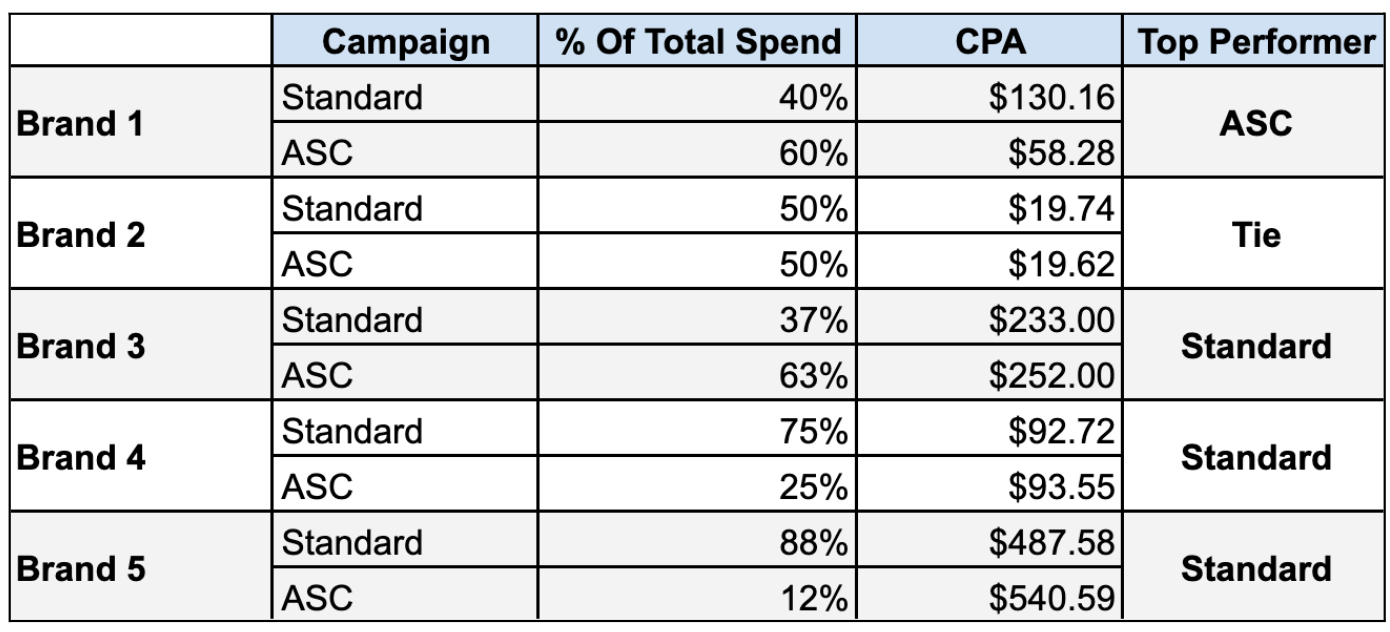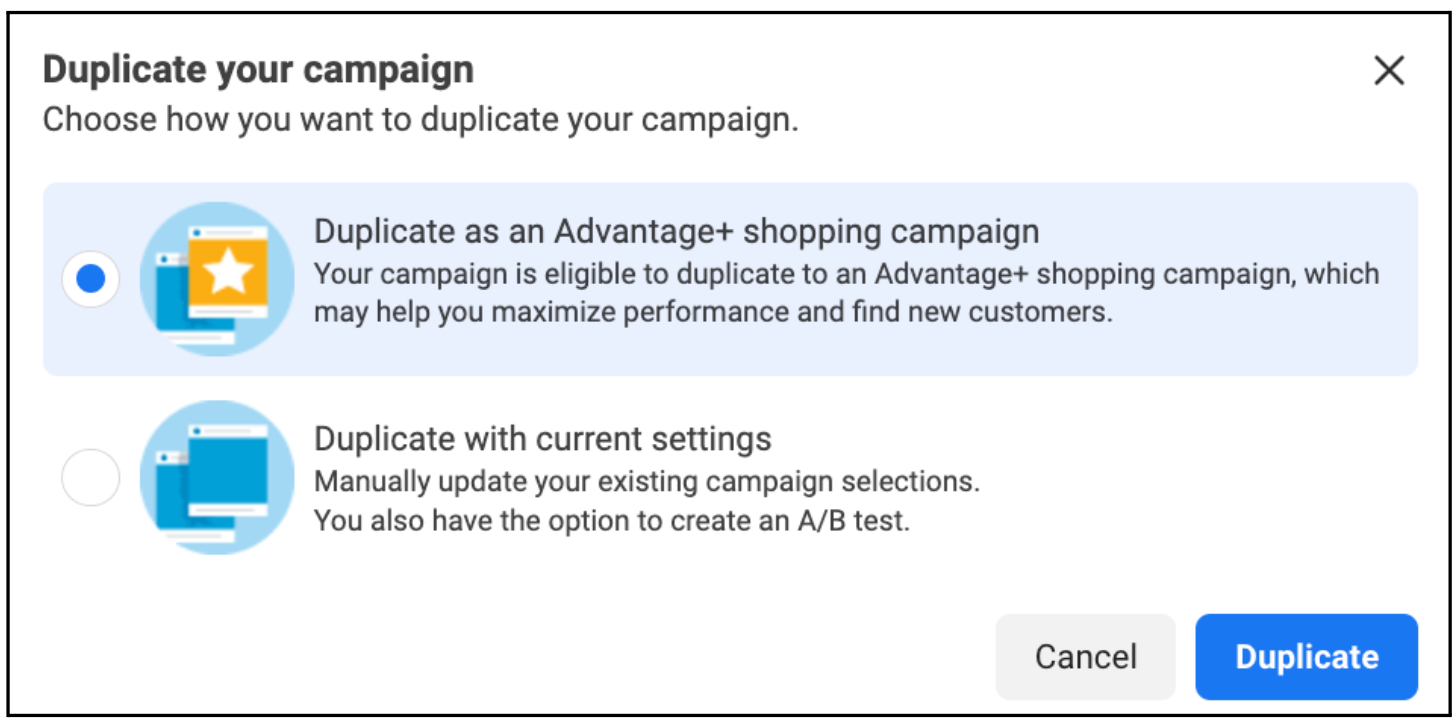The Golden Age Of Advantage+ Campaigns
Meta Ads is constantly changing. The algorithm is always being updated and refined, best practices are constantly moving, and new features are frequently introduced to the platform. One feature that was (somewhat) recently added to the platform is Advantage+ Shopping Campaigns (ASC), which were introduced in August of 2022.
When ASC campaigns were first rolled out, there was a lot of hype, especially in beta testing. Brands could drastically improve their marketing performance and experience cheaper CPAs by up to 25%. It was an unlock that felt like a cheat code. I personally experienced the power of ASC campaigns when they were first launched and witnessed a CPA improvement of 20% on an apparel client of mine just by launching this new campaign type. It was thrilling, but would it last?
Looking At The Data
Fast forward a year plus, and ASC campaigns are being used by every brand in every ad account. But does performance live up to the initial hype? At BMG360, we have performed a number of split tests between ASC campaigns vs traditional (CBO or ABO) campaigns to see how they compare. This is what we found:

Surprisingly, in 4 out of 5 tests, traditional campaign types either outperformed ASC campaigns or were on par with them. Pretty shocking stuff.
These five tests were performed across various industries, including apparel, fitness, cosmetics, and telemedicine. For brands 3, 4, and 5, the ASC campaigns had a higher CPA; for Brand 2, the ASC and traditional campaigns performed almost the same. On Brand 1, however, the story is a bit different.
On Brand 1, the ASC campaign drastically outperformed the traditional campaign, achieving a 55% improvement in CPA. This obviously doesn’t align with the results of our other tests. How could this one ASC campaign wildly outperform its traditional counterpart when all the other tests show ASC performing in line with/worse than traditional campaigns? We have a few thoughts here:
1. This test was run when ASC first became available. Therefore, there was little competition for ASC delivery, and our ASC campaign was able to perform extremely efficiently. We've actually seen this across a variety of brands. When we first tested into ASC campaigns in 2022, performance was very efficient. Since then, the magic of ASC campaigns and their tremendous efficiency has faded.
2. In this specific test, the standard campaign relied heavily on interest targeting and lookalike targeting. We believe that this refined targeting hurt the performance of the standard campaigns. The fact that ASC utilizes very broad targeting opened us up to a new audience and enhanced our efficiency.
Takeaways
So, what can we learn from the results of the five tests? I believe ASC campaigns aren’t all they are hyped up to be. When they first came out, it was possible to experience drastically better performance with ASC campaigns (as shown from the results of Test 1, but since then, they are no longer a magic bullet for stellar performance. I continue to test ASC campaigns for all of my DTC clients because they add a bit of extra scale to my accounts, but the days of jaw-dropping CPA improvements from ASC campaigns are over.
A Prediction
That said, it is clear that Meta is still pushing very hard to get advertisers to adopt ASC campaigns as their default campaign type. For example, Meta recently made an update to ad account functionality. If you duplicate a traditional campaign, Meta will encourage you to launch it as an ASC campaign, as shown in the screenshot below.

Although we are not seeing incredible performance out of ASC campaigns anymore, I have a prediction: ASC campaigns will start consistently outperforming standard campaigns in the future. This prediction is based on the following:
1. It is clear that Meta is favoring this product. As Meta continues to favor this product and push it on advertisers, they will continue to tweak its efficiency and delivery which will improve the performance of this campaign type.
2. ASC campaigns fall in line with Meta advertising trends that we have seen taking over in the past few years - this being a constant move towards more and more automation and less manual control. We saw this when Meta launched the CBO campaign type in 2017, which automated budget allocation across ad sets. Best practices have moved away from manually selecting ad placements and utilizing automatic placements instead. Best practices have also moved away from audience testing towards utilizing broad audiences and letting the Meta algorithm decide who to deliver to.
Although ASC campaigns are no longer the golden ticket they used to be, it feels like they are the natural next step in Meta’s continuous move towards automation. I am optimistic about their future.
Note: Big shoutout to my teammates Brad Klein and Jason Lu, who launched some of the split tests referenced above and performed an analysis of the results.
Note: For each split test referenced above, similar exclusions were applied to the ASC and traditional campaigns to provide the most reliable results possible.